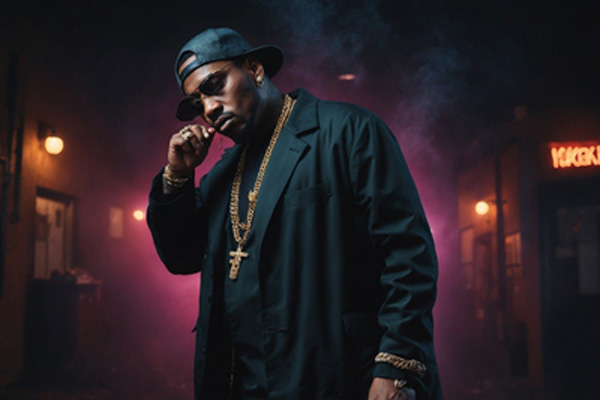Drake and Kendrick Lamar’s feud has far-reaching impact besides music, politics and economy

[Rappers. Photo credit to Pixabay]
In a dramatic and highly publicized feud, hip-hop superstars Drake and Kendrick Lamar have been exchanging highly charged lyrical insults since the early 2010s, culminating in a significant escalation in March 2024 due to Lamar's feature on Future and Metro Boomin’s album "We Don’t Trust You," impacting various fields beyond the music industry, such as politics and economics.
While the feud has drawn criticism for its use of offensive and harmful language, it still remains a compelling saga in the hip-hop world, illustrating the genre’s enduring ability to captivate and provoke audiences.
The escalating battle between Drake and Kendrick Lamar is a multifaceted phenomenon that has transcended the boundaries of music to influence political discourse and generate substantial economic benefits for various industries.
The Biden-Harris campaign capitalized on this high-profile beef by using Lamar’s diss track "Euphoria" in a video targeting the former president, Donald Trump.
The video featured an altered version of Lamar’s lyrics criticizing Trump's stance on women's rights, immigration, and his behavior on social media, likening the political clash to the ongoing rap battle.
Economically, the feud has caused a boon for various industries, particularly music companies and content creators on platforms like YouTube.
Both Drake and Lamar are affiliated with Universal Music Group (UMG), with Lamar under Interscope Records and Drake with Republic Records.
This corporate connection means that UMG benefits financially regardless of which artist is in the spotlight at any given moment, much to the envy of competitors Warner Music Group and Sony Music Entertainment.
YouTubers and other social media content creators have also capitalized on this media opportunity and profited from the feud.
One prominent figure in the reaction community, known as No Life Shaq, has publicly stated that he has earned significant revenue from creating content about the Drake-Kendrick beef.
This sentiment is echoed by many other individuals in the online community who have found that the ongoing rivalry has provided ample material for analysis, reaction videos, and discussions, driving traffic and engagement on their channels.
Initially, Drake and Lamar collaborated harmoniously on each other’s records early in their careers, with Drake featuring Lamar on his 2011 album "Take Care" and Lamar reciprocating on his 2012 album "Good Kid, M.A.A.D City."
However, their relationship took a massive downfall after Lamar’s provocative verse on Big Sean’s 2013 song "Control," where he called out multiple rappers, including Drake, sparking a rivalry that has captivated the music world.
The feud reached new heights on March 22, 2024, when Lamar's verse on the album "We Don’t Trust You" reignited tensions.
Drake responded fiercely with the music video for his song "Family Matters," which showed speculations about the parentage of one of Kendrick's children and even accusations about Lamar of assaulting the child's mother.
Kendrick retaliated less than an hour later with "Meet The Grahams," where he accused Drake of being a pedophile, a gambling addict, and a negligent father to an unacknowledged 11-year-old daughter.
Both artists resorted to misogynistic and homophobic slurs, using women as weapons in their lyrical warfare, which sparked debates about the persistence of these harmful tropes in hip-hop.
Despite the controversy and lack of concrete evidence for the most scandalous allegations, many observers, including the author of this article, believe Kendrick emerged victorious.
His sophisticated wordplay and incisive commentary questioned Drake's authenticity and his place within the hip-hop community, painting Drake as an outsider exploiting the genre's cultural capital for personal gain.
As the battle continues to unfold, it serves as a potent reminder of the power dynamics, cultural implications, and economic opportunities embedded within the world of hip-hop.

- Jimmy Kim / Grade 7
- United World College of South East Asia

![THE HERALD STUDENT REPORTERS [US]](/assets/images/logo_student_us.png)
![THE HERALD STUDENT REPORTERS [Canada]](/assets/images/logo_student_ca.png)
